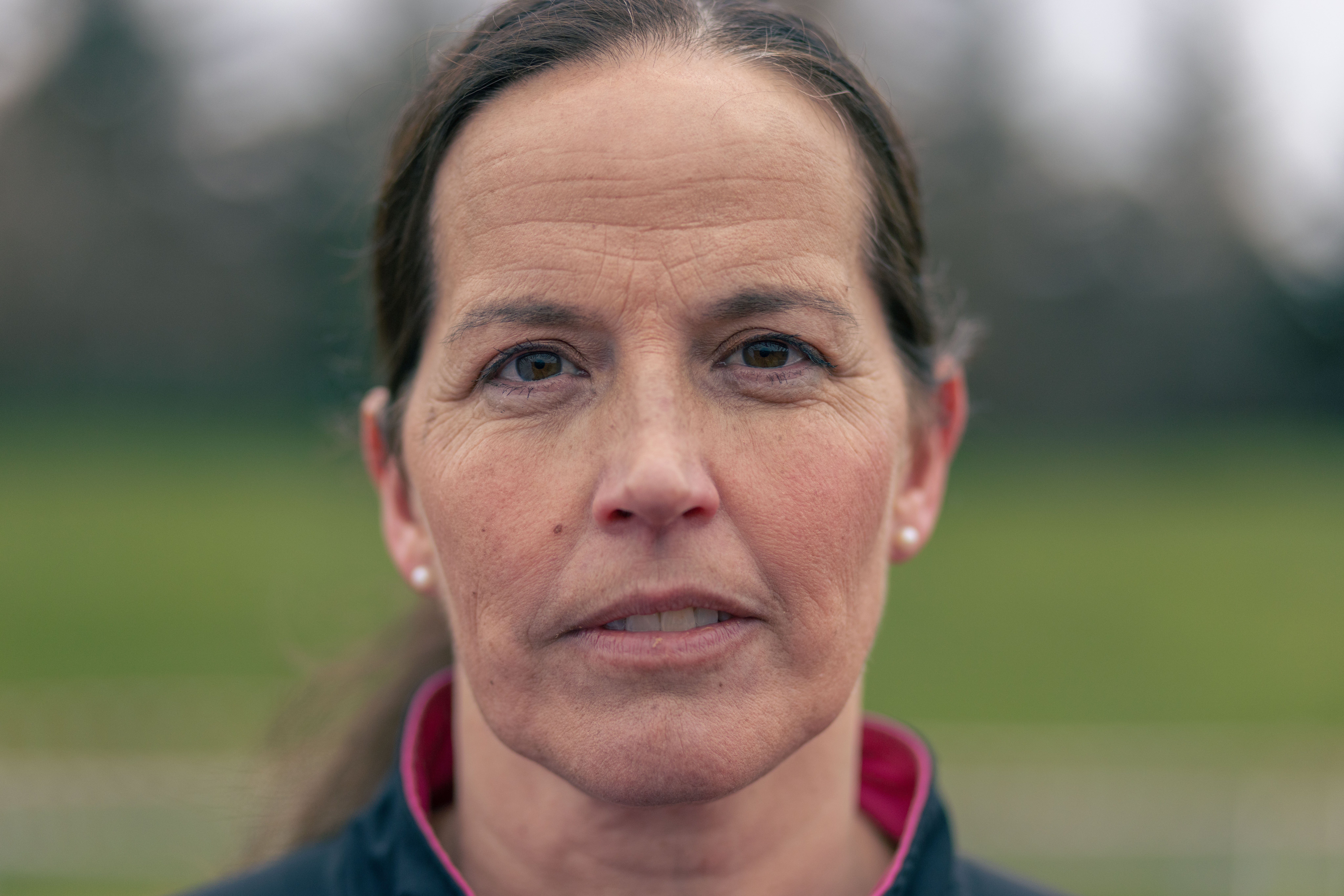“Crossing the finish line will be so emotional – not only the physical exertion but the whole emotional journey that I’ve been on”
Asking for help is never easy but as school vice principal Lesley found out the hard way, it’s sometimes the only way to get yourself out of the dark periods. Ahead of her first marathon, Lesley shares her mental health journey and the impact it has had on her outlook.

In 2023, Buxton is proud to partner with Mind to support the sweat and tears of 15 Rise Up Runners. 15 real people, each facing their own physical and mental struggles, who are bravely taking on the ultimate test of resilience: The London Marathon. Their road to the race will be part of Buxton and Mind’s wider mission to promote better physical and mental wellbeing across the nation, through exercise and hydration.
Here school vice principal Lesley opens up about how work pressure and perfectionism triggered a period of poor mental health, and how opening up to her family, and finding a new focus in running, helped her get the help she needed to get back to her best.
Could you talk us through the mental health struggles you’ve faced in recent years?
Back in 2019 I secured my headship, which was my ultimate goal career-wise. I wanted to have a big impact across as many children as I could. But with that comes incredible pressure and stress and it started to affect my everyday life. I wasn’t eating or sleeping well and my self-care was non-existent.
I’m married with two sons, and my husband sensed a change in me. I would get myself in a rabbit warren of crippling worry. I couldn’t focus on what was going well in my life. I didn’t feel like I should be blessed with such a fantastic family. I second-guessed every decision I made and felt like I was letting everyone down. I remember driving to work and feeling completely sick and completely overwhelmed. The thoughts I had scared me, and although it was a struggle, I convinced myself that it would be better if I was around.
How did you seek out help?
I’m quite an independent person and I don’t like asking for help as I think it’s a sign of weakness. To put my hands up and say ‘I can’t cope’ was one of the hardest things I’ve ever had to do. At one point I didn’t think I was going to get through the weekend. I rang the doctor and managed to get an appointment. When I got there I just broke. It was supposed to be a ten-minute appointment and I was there for about an hour and a half. She wouldn’t let me go. She said: “This is acute anxiety and depression. You are ill. You are not fit to go to work.” I was given anti depressants and sleeping tablets and she signed me off work. What I thought was going to be a couple of weeks ended up being about three and a half months. My doctor and I spoke every couple of days. She was absolutely phenomenal. I was incredibly lucky that someone invested that much time in me.
What did your support system look like?
My husband had to do the juggle: to protect the boys from what I was going through but also keep the house going. I couldn’t get out of bed and couldn’t face life. My dad made sure I wasn’t left alone. He physically had to hold my hand. It wasn’t easy for him though. He really struggled with the concept of mental health as it wasn’t something that was particularly talked about in his generation and there was nothing he could do to make it better.
Why are you running the marathon?
Sadly, in December 2019 I lost my dad suddenly. He didn’t get to see me go from strength to strength. He only saw the small steps. Which is why I’m doing this. I’ve always been driven to make him and my family proud. My dad is the person that held my hand through thick and thin.
What does running do for you?
It’s about determination and resilience. One step in front of the other. And they are small steps in the right direction. I’ve always wanted to do a marathon. For me, there’s a link with mental health. It’s that journey. Training for a marathon is hard, but life is hard. It’s all about those parallels.
What do you think the finish line will feel like for you?
I don’t think I’m going to be able to put that into words. It won’t only be the physical exertion that I’ve put in, it’ll be the whole emotional journey that I’ve been on and continue to be on.
What advice would you give to others having mental health struggles?
It’s about being brave and asking for help. Find a channel and talk to somebody – it’s not something you can do by yourself. It’s about recognising that with the people and support around you it will be okay.
Has the marathon acted as a goal for your mental wellbeing?
Absolutely. Exercise was always key and a real driver in my own wellbeing. There’s a real focus and it reflects the journey I’ve been on with my mental health. There are knockbacks but you come through it with the right support. And that’s the same with mental health. That support will change during your journey but it’s always there. It reflects where you are along that road.
If you’ve been affected by any issues raised in this article, visit mind.org.uk for information and support
Register for the chance to WIN a 2024 TCS London Marathon place



